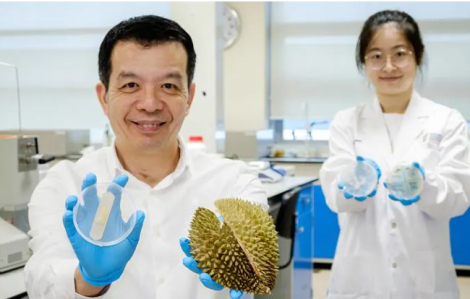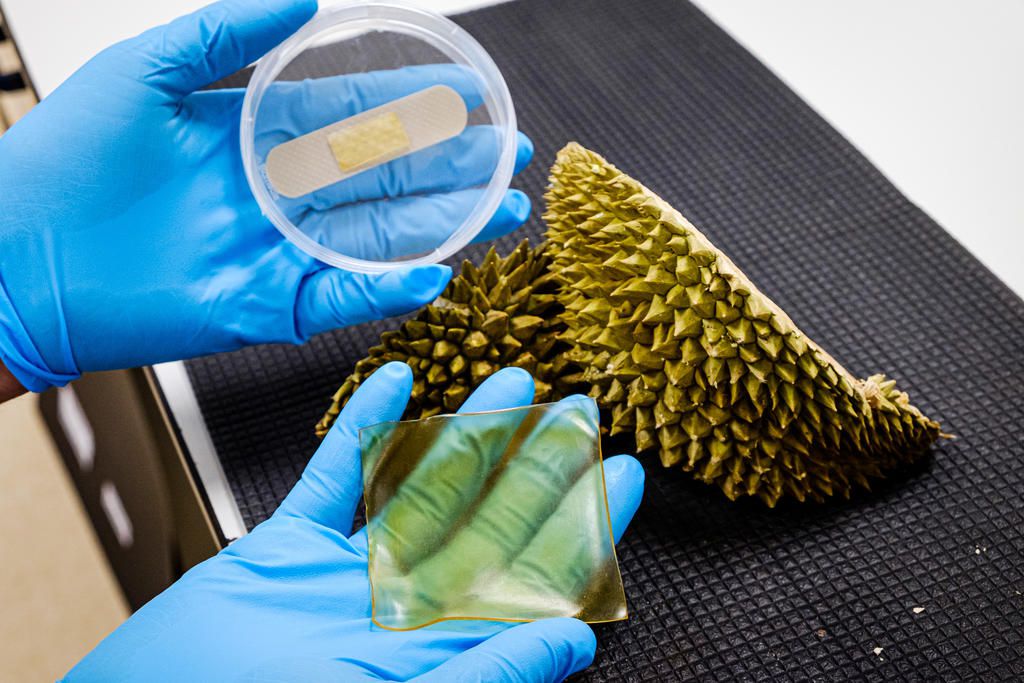The husks thus contribute to about 60 per cent of the waste generated from the consumption of durians and are usually discarded.
A team of four scientists from Nanyang Technological University (NTU) is hoping to change that.

They have found a way to turn the husks into antibacterial gel bandages, which are typically used to cover surgical wounds to reduce excessive scar tissue.
Such bandages on the market now are usually made of synthetic materials such as polymers and may include metallic compounds such as silver or copper.
Organic molecules from baker’s yeast were then added to the gel to create a bandage that kills bacteria.
Professor William Chen, the team’s leader and director of NTU’s food science and technology programme, said: “By using waste products that are currently discarded in large quantities — durian husks and glycerol — we could turn waste into a valuable biomedical resource that can enhance the speedy recovery of wounds and reduce chances of infections.”

The other team members are research fellow Jaslyn Lee and doctoral candidates Cui Xi and Ng Kuan Rei.
With Singapore importing 8,900 tonnes of durian in the first half of 2018, Prof Chen said that their novel use of the fruit’s husks would help reduce food waste.
The organic gel bandage is non-toxic and biodegradable and is thus expected to be more environment-friendly than conventional synthetic bandages.
For those put off by the smell of durians, Prof Chen said that the gel does not retain the thorny fruit’s tang, which usually comes from the fruit’s flesh and not its husk. The extraction process also removes any residual smell from the cellulose.
The product has yet to be commercialized, but Prof Chen said that he does not expect it to carry a hefty price tag.
This is because durian husks are inexpensive. His team has also developed a low-cost technological process to extract cellulose from the durian husk.
In an extraction process dubbed “detergent treatment technology”, the husks are sliced, freeze-dried and ground into a fine powder before the impurities are removed.
The process costs S$120 for every kilogram of durian husk.
The technology can be applied to other natural materials as well. This means that even when durian is not in season, it can be used to extract cellulose from other raw materials such as barley grain or soya bean residue.
The NTU team hopes to commercialize these durian-derived bandages in a year or two.
Prof Chen said that the plan is to make the bandages available over-the-counter at pharmacies, so that consumers have more options.
“The motivation here is not to sell our antibacterial bandage, but to prove that sidestream food waste can be upcycled.”














